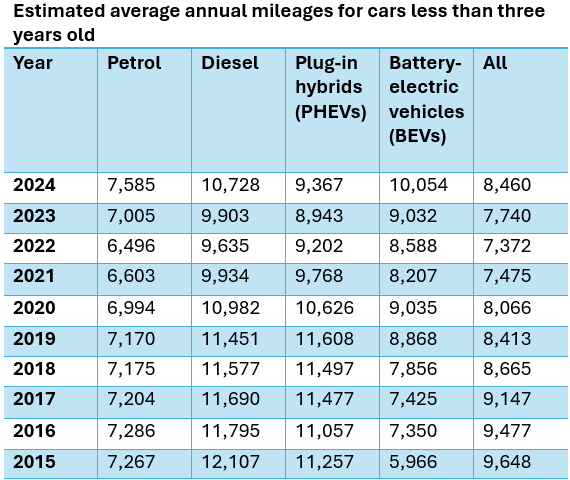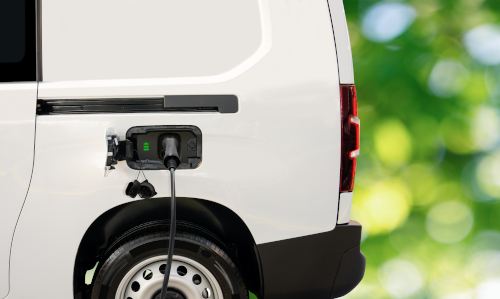More than one in twenty car miles in the UK is now driven by a zero-emission car, according to new research.
Analysis by the RAC Foundation shows that at the end of 2024, zero-emission cars comprised just 3.8% of the national car fleet but undertook 5.3% of all car mileage.
The RAC Foundation also noted that the total percentage of zero-emission mileage will have been higher still, once you factor in the distance covered by hybrid cars running on their batteries rather than combustion engines.
In their first few years on the road, 'pure battery-electric cars now appear to be covering almost the same number of miles annually as relatively new diesels, the traditional high-mileage work horse' - the RAC Foundation said.
In 2024, it is estimated that pure battery-electric cars less than three years old were driven an average of 10,054 miles. This compares with an average of 10,728 miles for diesels less than three years old.
The calculation is based on data from more than 1.2 million MOT tests.
The study also shows that plug-in hybrids under three years old averaged an estimated 9,367 miles last year, whilst new petrol cars were only driven an average of 7,585 miles.
The average annual mileage for all cars under three years old in 2024 was 8,460 miles.
Ten years ago, a new battery-electric car covered less than half (49%) the miles of a new diesel. Today it is doing almost the same number of miles (94% the distance of a diesel).
The zero-emission vehicles were almost universally pure battery-electrics but also included a tiny number that were hydrogen-powered.
Steve Gooding, director of the RAC Foundation, said: 'Until recently new car buyers, often fleets and businesses, have looked to diesels when they’ve needed something capable of racking up the big miles whilst still offering reasonable fuel economy. Now it seems that fully electric cars are starting to take over where the diesel left off, providing a practical alternative in terms of range and cost per mile, and because of the attractive tax breaks they come with.
'Given this shift in buying patterns, the fact that new cars generally have tended to run up more miles than older ones and that most electric cars on the road are relatively young, it might not be so surprising that our analysis shows battery-powered vehicles account for a disproportionately large number of miles in use. That's good news for helping us meet our carbon reduction targets in a week when the Government has also reinstated grants to make new electric models more affordable.'

The research contributes to the RAC Foundation's Green Fleet Index. This tally tracks progress towards what the Foundation estimates is the minimum proportion (37%) of zero-tailpipe-emission car mileage necessary by the end of 2030 to meet national carbon reduction targets from cars - without the need to reduce the number of miles driven.
According to the SMMT 24.8% of new cars registered in the UK in June 2025 were pure battery-electric vehicles (BEVs) while just 5.6% were diesels. Plug-in hybrids accounted for 11.2%. Petrol cars had the biggest share of the market at 46%.






